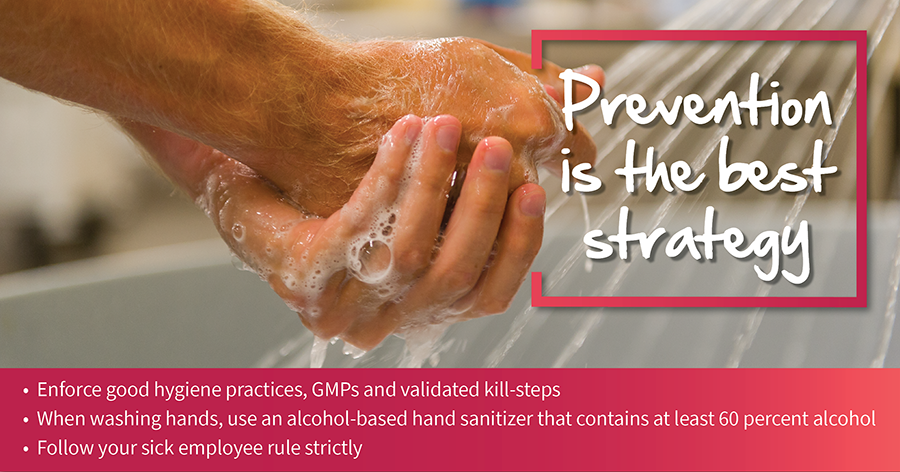Special Update: Can the 2019 Novel Coronavirus be transmitted through food?
Coronaviruses are a group of viruses that cause respiratory diseases in birds and mammals, including the common cold in humans. The 2019 Novel Coronavirus, or 2019-nCoV, is a new contagious respiratory virus that causes severe respiratory infection. Initial investigation has linked (though has not clinically confirmed) 2019-nCoV to a large seafood and animal market in Wuhan, Hubei Province, China, and now it is spreading from person-to-person. Comparison of genetic analyses suggests that this virus emerged from a virus related to SARS, which first emerged in China in 2002.
Most often, the 2019 Novel Coronavirus seems to spread from person-to-person in close proximity to one another. It is currently unclear if a person can get infected with the 2019 Novel Coronavirus by touching a contact surface/object that has the virus on it and then touching their mouth, nose and eyes, however, this is a common vector for most respiratory viruses. Currently, there are no vaccines to prevent the 2019 Novel Coronavirus infection. Therefore, prevention is the best strategy to contain cross-contamination and the outbreak.
At the time of this publication, the Centers for Disease Control and Prevention (CDC) does not have any evidence to suggest that animal products imported from China pose a risk for spreading the 2019 Novel Coronavirus in the United States or other markets. Additionally, the CDC has not listed contaminated food as a likely transmission route. Based on this information, the risk of contamination through food would be considered low.
So far, there are no scientific evidences and there has been no mention of food transmission at this point. Most of the information to-date is based on past experience with other coronavirus outbreaks, though each virus can evolve differently. Hence, vigorous enforcement of good hygiene practices, GMPs and validated kill-steps are vital in a food processing environment. For hand washing, it is recommended to use an alcohol-based hand sanitizer that contains at least 60 percent alcohol and also follow sick employee rules strictly.

We will continue to track this rapidly evolving situation and more information will be provided as it becomes available. For additional inquiries, please contact us at info@aibinternational.com.
References: https://www.cdc.gov/coronavirus/2019-ncov/about/transmission.html, https://www.cdc.gov/coronavirus/2019-ncov/faq.html#prevention, https://www.who.int/emergencies/diseases/novel-coronavirus-2019/advice-for-public
Food safety must


